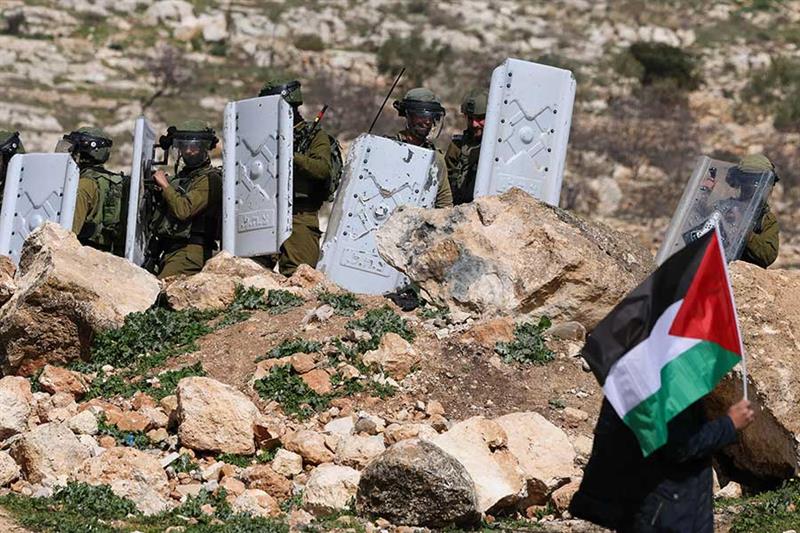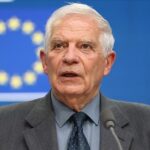The West Bank is still the scene of violence between Israelis and Palestinians. Several underlying factors continue to fuel these tensions. Explanations.
No de-escalation in sight, it seems. The tension is still heavy in the occupied territories, despite attempts at appeasement. The Israeli army announced on Sunday March 12 that it had killed three Palestinians in the area under Israeli security control, west of Nablus, in the occupied West Bank. In this area, the Israeli army has been increasing operations for almost a year, insisting that it is a hotbed of violence. It is the second deadly incident of its kind in a single week. A Palestinian suspected of wanting to carry out an attack was killed on Friday March 10 by an Israeli settler, the day after a Palestinian attack which injured 3 in Tel Aviv. Thus, these deadly incidents come as the Israeli-Palestinian conflict seems to be sucked into a new inextricable spiral of violence since the entry into office, at the end of December, of one of the most right-wing governments in the history of Israel, led by Prime Minister Binyamin Netanyahu.
Since the beginning of the year, the tension has been at its height. And the situation is not about to calm down. “Tension may increase in the occupied territories with the month of Ramadan approaching. The violence is likely to increase all the more as the Israelis can, as every year, prevent the Palestinians from praying at the Al-Aqsa mosque. The Israelis provoke the Palestinians, especially the young people; the latter in turn fall into this trap and commit acts of violence. And then, it’s escalation, ”explains Dr. Mona Soliman, political scientist.
Divert Israeli Attention
The researcher explains that there are other reasons behind the Israeli provocations this year. “The government wants to divert attention from the internal crisis by exploiting tensions with the Palestinians. For two months now, Israelis have been demonstrating every week against the judicial reform presented by the government. This puts Netanyahu in a critical situation. Demonstrations can push him to resign. This will lead to new early legislative elections. So, to distract public opinion, the government wants to show it that there are greater threats and greater dangers, namely tensions with the Palestinians and regional changes,” explains the analyst.
Since the beginning of the year, the Israeli-Palestinian conflict has claimed the lives of 81 Palestinians (including members of armed groups and civilians, including minors), 12 civilians (including 3 minors) and one Israeli policeman, as well than a Ukrainian, according to an AFP tally compiled from official Israeli and Palestinian sources.
In this regard, the appeals for calm launched by the UN and many foreign chancelleries have increased. The European Union called on all parties to exercise restraint. “It is urgent to put an end to the cycle of violence and to defuse the situation,” said the spokesman for the head of European diplomacy, Josep Borrell. Visiting Israel as part of a Middle East tour, US Secretary of Defense Lloyd Austin said the United States was particularly concerned about recent settler abuses against Palestinians in the West Bank, Palestinian territory occupied since 1967 by Israel. Austin also stressed the need for de-escalation and for lowering tensions and restoring calm, especially ahead of the Passover (early April) and Ramadan holidays, which are due to begin in late March. “We are particularly concerned about the violence of (Jewish) settlers against Palestinians,” US Defense Secretary Lloyd Austin said during a brief visit to Tel Aviv, referring to settler abuses burned dozens of buildings and cars in the northern West Bank at the end of February, after the murder of two of their own by a member of the Islamist movement Hamas. While reaffirming the United States’ “unwavering” support for Israel’s security, Austin pleaded for “de-escalation.”
But apart from these calls, neither the United States nor the international community as a whole are acting to put in place a lasting solution.
This article is originally published on hebdo.ahram.org.eg









